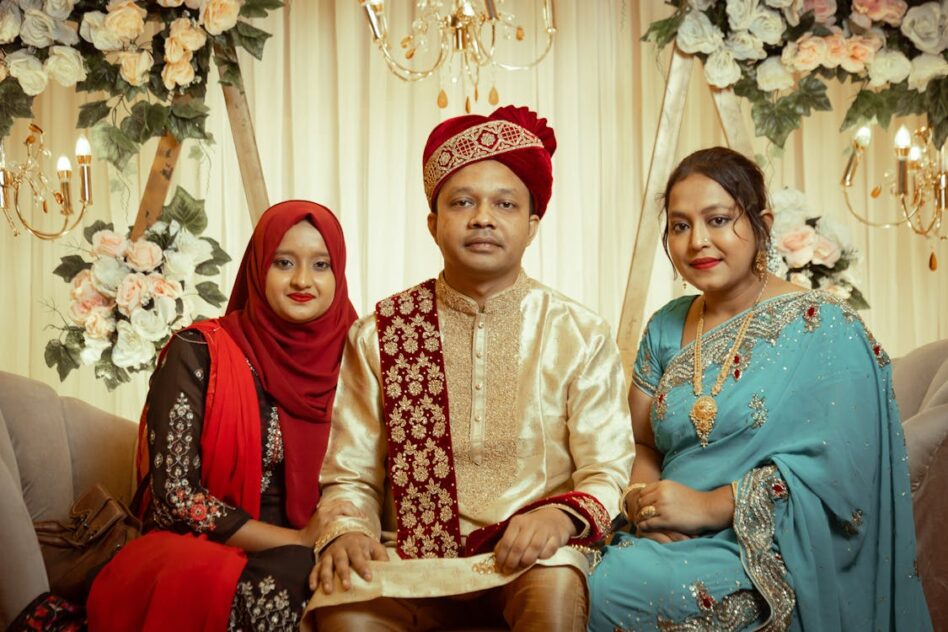THE first minister for the National Unity Ministry Tan Sri Napsiah Omar was, in my view, one of the more remarkable ministers in the Cabinet back in the day. She was dedicated and down to earth in dealing with issues of the day. She was able to garner women support and participation in national development.
The current minister, Datuk Halimah Mohamed Sadique, is a political star from Johor, and she is preparing a four-year plan for national unity, which she hopes will bear fruit in 2025.
We are not told how much money will be budgeted for her to revisit and promote, among others, the principles of Rukun Negara, the establishment of kindergarten classes, and other activities to make Prime Minister Datuk Seri Ismail Sabri Yaakob’s Malaysian Family concept a success.
I do not want to pour cold water over her plans to bring unity to the country. We have, after all, tried it for over 50 years. But I can’t help writing this piece, as unity comes from the heart, not what programmes we devised to promote it.
It is a daunting and almost an impossible task because unity can only be achieved by a “give and take” concept and consensus building from the various ethnic groups. This is the recipe prescribed by Tunku Abdul Rahman, our first prime minister and the founding father of our country.
The more dominant groups in the country, however, only want unity on their own terms. Give and take is a weakness, they say. They believed Tunku had “given too much away”. The legacy of the past had to be corrected; history had to be revisited.
That is why real unity is almost impossible.
When asked about his hope for the country, Tunku said that all he prayed for was for the people to be happy. A simple wish from the man with a good heart, hoping only the best for his people.
He did not wish for us to be rich, or a superpower. He wanted this country to be united, and for that to happen, Malaysians need to be happy. He told us of the difficulties and challenges we had to face to bring together people of different economic situations, ethnicity, and religions in order to be happy and united.
However, he was confident of the goodwill of the people, and that the “experiment” would be successful.
Economic tiger
Unfortunately, his successors were not interested in making Malaysians happy. They wanted Malaysia to be an “economic tiger”. They wanted Malays to have privileges and special rights without being questioned.
As if their plans were not bold enough, they also wanted the country to be a “religious country”, where the official religion provides the guidance of truth, as explained by religious leaders.
Democracy and the Federal Constitution are just symbols. The status of other religious faiths is not on par with the official one.
That is why an attempt to set up Interfaith Commission in 2005 to foster dialogue and understanding failed. It is a sense of superiority that led Islamic civilisation (as opposed to world civilisations) to become a mandatory subject for students.
The ambitious leaders of the country then started changing the framework and principles upon which we were set up. They started a new experiment of building Malaysia on another platform – the religious platform – but led by Malay leaders who excel in creating wealth, at times only for themselves.
A nation’s family (Malaysian Family) is just like our own family. To be united and harmonious, the family members need to be happy. They need to trust and be comfortable with one another.
Daunting task for Halimah
Halimah will not be able to explain why discrimination is rampant and institutionalised in the country. For example, why do we exclude non-Malays from holding top positions in the civil service and universities?
Halimah will not be able to explain the massive brain drain to the benefit of Singapore and other countries. She cannot explain why we still need the Malay-first policy for the country’s national unity and well-being after 60 years of Independence, when we lost so many talented and extraordinary Malaysians to other countries?
Remember the Malaysian (a non-Malay) who invented the first COVID-19 tracker (like MySejahtera) and gave it for free to New Zealand, his newly adopted country?
Remember the Chinese boy who invented the pendrive after being supported by Taiwan because he could not get help here?
Remember the GrabFood pioneer who left the country and relocated to Singapore because his motherland could not help him?
How can Halimah explain to the young the meaning of democracy, equality, fairness, justice and the other principles of Rukun Negara without tackling the issues I raised?
We are a democracy, and yet Muar MP Syed Saddiq Syed Abdul Rahman could not register his political party, the Malaysian United Democratic Alliance, while others can.
We are willing to revisit the cause of death of firefighter Muhammad Adib Mohd Kassim but will not do so for Teoh Beng Hock.
We talk of the rule of law, but the police allegedly ignored the High Court order in M Indira Gandhi’s case of her missing daughter.
What did we do about the deaths of so many Indian youths in police custody? Will we be so detached and uninterested if those who died were Malays?
Halimah has to stand up and fight for justice and fairness for all Malaysians if she really wants a happy Malaysia. She can’t expect them to be happy and remain united as one family if things do not change.
Perhaps some of the Malay and Muslim groups do not care about national unity as generally understood. They see accommodation and compromise as a weakness. National unity and Rukun Negara are just showpieces.
Many unity ministers have come and gone, where lofty pronouncements and big plans were made about unity, but fundamentally the basic purpose was only to garner votes and get elected at the next election.
There is no intrinsic belief in the value of unity and harmony for the country, in the manner Tunku did. The politicians here do not believe in them, just like the Republican politicians who see no merit and value in democracy, but only in Trump.
That is why I feel sorry for Halimah and the country. – Oct 18, 2021
Datuk Zaid Ibrahim is a former Law Minister.
The views expressed are solely of the author and do not necessarily reflect those of Focus Malaysia.










